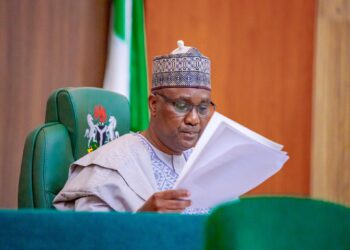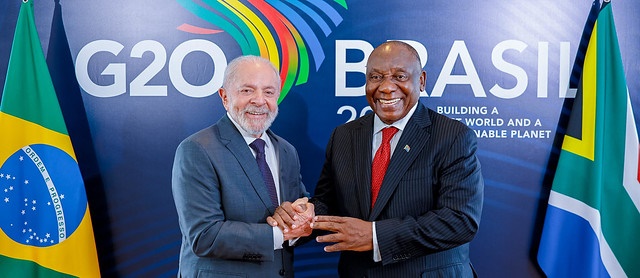Nigerian economists and financial expert has revealed that the recent drop in price of Petrol following a direct fuel purchase deal signed between Dangote Refinery and Independent Petroleum Marketers Association of Nigeria, IPMAN may force inflationary pressures down in the coming months. Former President of the Council of the Chartered Institute of Bankers, Prof. Segun Ajibola, and the CEO of SD & D Capital Management, Mr. Idakolo Gbolade, disclosed this to DAILY POST in an exclusive interview yesterday.
This is coming in the wake of continued food inflation where for the second consecutive months according to National Bureau of Statistics, NBS in its latest consumer price index, the figures is amounting to 33.88% and 39.16 percent during the month of October.
On a year-on-year and month-on-month basis, the country’s inflation grew by 6.55 percent and 2.64 percent, respectively.
For the period under review, a further analysis indicated that urban and rural inflation stood at 36.38 percent and 31.59 percent respectively.
The skyrocketing inflation has eroded the purchasing power of most Nigeria across the strata making it the most remarkable in history of Nigeria.
This is as a result of fuel subsidy removal that was implemented by the president Tinubu Administration from day one that he assumed office, pushing prices of food, clothing, pharmaceuticals, transportation and energy to a far beyond the reach of a common man.
CBN’s monetary policies can’t fix inflation pressures in Nigeria — Ajibola
Reacting to the NBS report, Ajibola said that monetary policies such as interest rate cost by the Central Bank of Nigeria cannot solve Nigeria’s inflationary pressures because they are cost-induced.
According to him, the apex bank over the years has been diagnosing inflation with the wrong policies.
In his statement, “Monetary policies cannot solve inflationary problems in Nigeria. The Central Bank of Nigeria has been fighting a battle that it cannot defeat because the country’s inflation pressures are cost-induced.
“It is because of a rise in demand or an increase in money supply.
“The landing cost of imported items is increasing due to the current exchange rate. Locally, there are pressures from all cost edges. So unless this is tackled, the challenges in Nigeria’s inflation will remain,” he stated.
Nigeria yet to recover from fuel subsidy removal shock, Naira floating shocks – CPPE
In his opinion, the Executive Director of the Centre for the Promotion of Private Enterprise, Muda Yusuf, revealed that the rise in Nigeria’s inflation is a clear indication that the country is yet to recover from the shocks of the fuel subsidy removal policy and the Naira floating policy by President Bola Ahmed Tinubu’s government meted on Nigerians when he took over power.
He said, “The rise in inflation is an indication that the economy is yet to recover from the shocks of the reforms in exchange rates and fuel prices.
“Hopefully, with some of the measures being implemented by the government or contemplated under the economic stabilisation plan, temporary import duty waivers, and other policies that will be fully implemented, we may see some reduction in the food prices,” he noted.
Nigerians suffering inflationary pressures for over 10 years — Idakolo slams CBN
Idakolo, on his part, said the CBN monetary policies such as the interest rate hike, which stood at 27.75 percent in October 2024, have not impacted the country’s inflationary pressures in the past 10 years.
“The CBN has tried various policies to stem inflation, but several other factors are making inflationary pressures increase.
“The economy has been experiencing inflationary pressures for the past 10 years,” he stated.
Fuel price cut: Experts speak on Dangote, IPMAN deal
Meanwhile, the two experts Ajibola and Idakolo have both agreed that the Dangote refinery and the IPMAN direct petrol sale deal could be the game changer during the festive period and January next year.
This is coming as Dangote Refinery and IPMAN signed an agreement on the purchase of 60 million litres of fuel weekly. It is responsible for the drop in the price of the PMS across the country between N5 and N50, selling around N1060 and N1150 per litre across filling stations in the last few days.
Ajibola explained that “Good enough, the prices of petrol are reducing now because of the direct PMS purchase agreement between Dangote Refinery and the Independent Petroleum Marketers Association of Nigeria; this will have a ripple effect on the cost of doing business in the country,” he noted.
However, he blamed the fluctuations in the country’s foreign exchange market as the Naira fell to N1690.37 per dollar at the official FX market to be the major impediments for Nigeria because of its dependence on imports.
“Foreign Exchange has been so tough. It is a major cost item that may require time to address.
“Similarly, the cost of energy, fuel, and electricity will have a major impact on inflationary pressures.
“Reliance on local production, reduction of import duties for some consumables, we may have gradual improvements during this year if all that has been said is implemented,” he stated.
Meanwhile, he applauded “the direct petrol sale deal between Dangote refinery and IPMAN is a welcome development because it will discourage importation of petroleum products and eliminate the cost associated with importation.
“The federal government concession to sell crude to local refineries in Naira is another way of sourcing the locally refined crude at a lower cost. These measures will go a long way to ease inflation in the long run if it is consistent”, Ajibola concluded.







